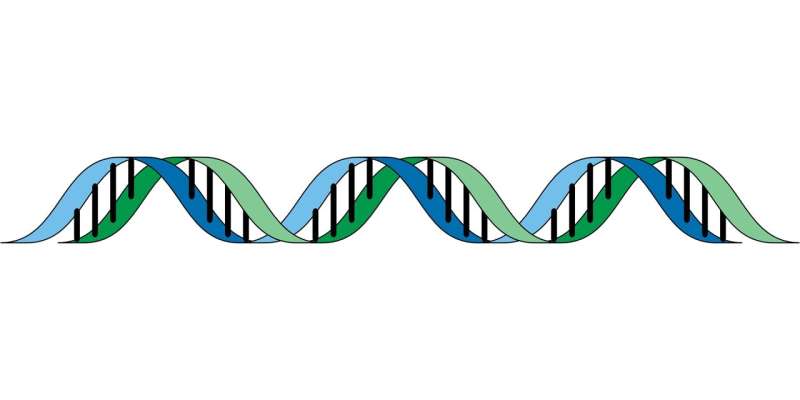This article has been reviewed according to Science X's editorial process and policies. Editors have highlighted the following attributes while ensuring the content's credibility:
fact-checked
peer-reviewed publication
proofread
1 in 25 carries a genotype that is associated with a shortened lifespan, according to scientists

Scientists at deCODE genetics have published a study on actionable genotypes detected in the Icelandic population and their association with lifespan. The results of this study are among the things that have motivated the government of Iceland to announce a nationwide effort in precision medicine.
As the delivery of precision medicine to a population requires considerable amount of data on genomics, transcriptomics and proteomics of the population, Icelanders are currently exceptionally well suited for this effort because they hold an unprecedented amount of such data.
The study, published in the New England Journal of Medicine, focuses on genotypes that increase the risk of a disease for which preventive or therapeutic measures have been established. These genotypes are termed actionable genotypes. The scientists used a population-based data set, consisting of 58,000 whole-genome sequenced Icelanders, to assess the fraction of individuals carrying actionable genotypes.
Utilizing a list of 73 actionable genes from the guidelines from the American College of Medical Genetics and Genomics (ACMG), the scientists found that 4% of Icelanders carry an actionable genotype in one or more of these genes. The diseases caused by these genotypes include cardiovascular, cancer, and metabolic diseases.
The study assessed the relationship between actionable genotypes and the lifespan of their carriers. The largest effect was observed among carriers of cancer-predisposing genotypes, which had three years shorter median survival than non-carriers.
A pathogenic variant in BRCA2, predisposing to breast, ovarian and pancreatic cancer, shortened lifespan by seven years and a variant in LDLR, which causes high levels of cholesterol and cardiovascular disease, shortened lifespan by six years.
"Our results suggest that the actionable genotypes identified in our study, which are all predicted to cause serious disease, may have a drastic effect on lifespan," said Patrick Sulem author on the paper and scientist at deCODE genetics.
The results showed that carriers of particular actionable genotypes were more likely to have died from the disease caused by these genotypes. Individuals with a pathogenic variant in BRCA2, have a seven-fold risk of dying from breast, ovarian, or pancreatic cancer.
Furthermore, they are 3.5 times more likely to develop prostate cancer and seven times more likely to die from prostate cancer than those who do not carry the variant.
The researchers determined that one in 25 individuals carried an actionable genotype and have, on average, a shortened lifespan. "The identification and disclosure of actionable genotypes to participants can guide clinical decision-making, which may result in improved patient outcomes. This knowledge therefore has significant potential to mitigate disease burden for individuals and society as a whole," said Kari Stefansson, author of the paper and CEO of deCODE genetics.
More information: Actionable Genotypes and Their Association with Life Span in Iceland, New England Journal of Medicine (2023). DOI: 10.1056/NEJMoa2300792



















